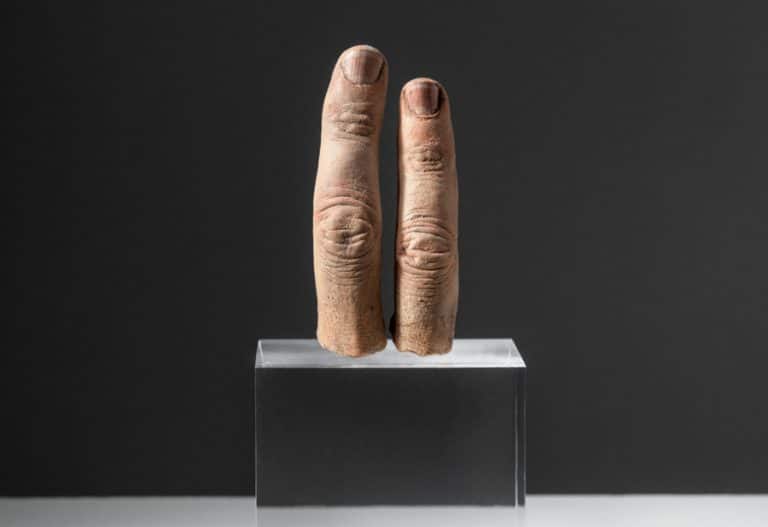This newly revealed ‘sensor-packed skin’ could let you hug someone long distance
Ever wanted to touch or cuddle a loved one, but they were too far away? I’ve got some good news for you. A number of researchers around the world are working on developing a ‘sensor-packed skin’ in order to allow for physical communication from a distance.
The study originally published on nature consisted of a report by researchers from the Hong Kong Polytechnic University and Northwestern University about how they have created a multi-layered, wireless and battery-free material that consists of a chip, sensors and actuators that allows its user to feel vibrations through the skin. The ‘skin’ is made of silicone and has a soft texture that essentially enables people to feel the sense of being touched by someone else without that person actually being there.
Commonly, VR and AR create human experiences through visual and auditory stimulation. While these can easily recreate sounds and visual sights, the other senses are difficult to recreate due to a number of factors—which is why this rapidly developing innovation is a cause of celebration within science and the VR industry. Sound and light are frequencies, as they are wave-based and can easily be digitized. For instance, augmenting the sense of taste is still in a relatively early stage of research, but it has been successful before, not by using chemicals, but by using only electrical signals. The sense of smell triggers an electrical pulse to our brain as we sense molecules, and because humans are estimated to have around a thousand different smell receptors while we only have five with taste, smell is naturally challenging to recreate.
The sense of touch, however, can be explored on a variety of different levels through AR, and this is exactly what the researchers behind the project are trying to do. In their research, they explain that while skin isn’t something widely explored within tech as of yet, it can “greatly enhance experiences at a qualitative level, with direct relevance in areas such as communications, entertainment and medicine.”
This innovation could bring great changes for the future such as better prosthetic control by allowing its users a stronger sense of touch. This technology could allow parents to ‘hold’ their child while they are abroad. It could also make waves in the gaming industry by allowing VR gamers to feel strikes and pushes while playing, or being able to ‘touch’ objects within their game, and actually feel a certain sensation. It could help long-distance couples explore intimacy on a whole new level. Most importantly, think of what it could do for the sex tech industry—this innovation could allow us to explore porn (and wanking) on a whole different level.
Naturally, like with most AI innovations, this could cause some debate—should something so ‘unnatural’ be used outside of medicine, and is AI, once again, taking it too far? Maybe, but as our world gets digitized, it is only natural that we follow.
Interestingly enough, this isn’t the only group conducting such research. Researchers at the Swiss Federal Institute are creating a 500-nanometer-thick artificial skin that would let VR gamers enjoy a sense-filled experience while researchers at Emory University presented a few months ago a ‘smart skin’ that mimics a chameleon’s change in colour—depending on how cold or warm it is, it could change the colour of our clothing or skin.
The possibilities within AR and VR research seem to be endless, and it will only keep growing and getting better. Technophobes, beware, as you too may end up using artificial skin in the near future.





